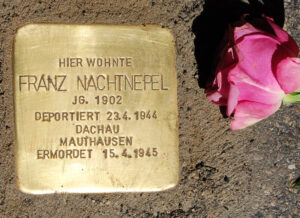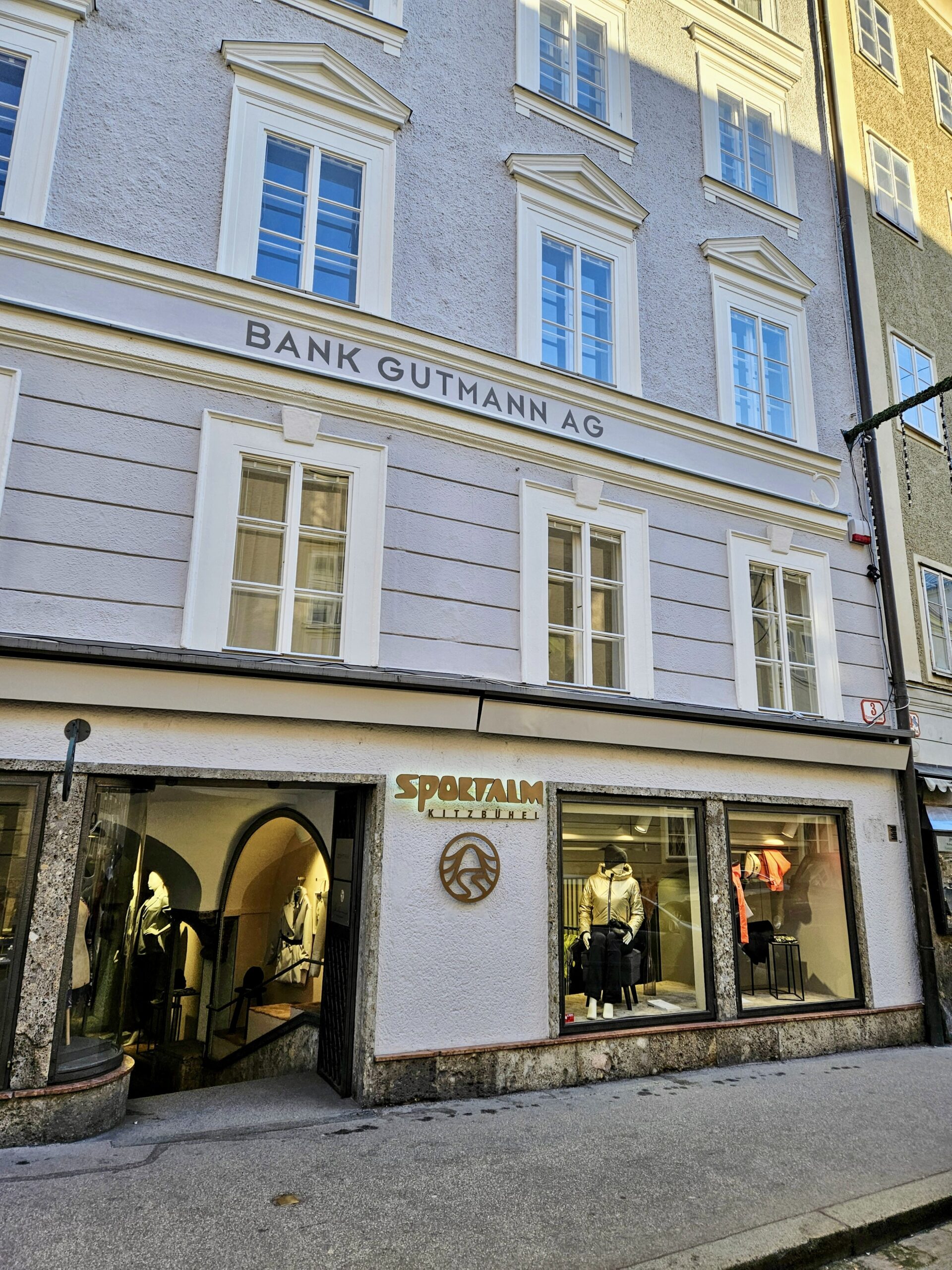Franz NACHTNEPEL was born in Vienna on October 24, 1902. He was an unmarried Catholic opera singer who lived with his parents in the Wien-Penzing neighborhood of Vienna.
At the beginning of September 1942 he was staying in the Salzburg hotel Zum goldenen Horn at 31 Getreidegasse/3 Universitätsplatz, where he was arrested – probably because someone had denounced him for alleged homosexuality.
On December 4, 1942 the 40 year old Viennese, who had no previous convictions, was convicted of violating § 129 I b of the Austrian criminal code prohibiting »unnatural fornication with a person of the same sex« (which was still in force under the Nazi regime), and sentenced to a year of »harsh imprisonment«.
At least that’s what the Salzburg State Court index says. The actual case file, Vr 490/42, was destroyed in the 1990s, so the details are unclear.1
Punishments of homosexuals by the Nazi regime have now become better known thanks to the research of Rainer Hoffschildts from Hannover. On March 5, 1943 Franz NACHTNEPEL was transferred from the Salzburg State Court to the Rodgau (Lager II Rollwald) prison camp in Hesse.
After completing his sentence he was sent back to Salzburg on September 9, 1943. But instead of being freed, he was held in the police jail to wait for another trial (according to Salzburg State Court file Vr 617/43).
But the Salzburg police didn’t wait for another trial, instead they sent him to the Dachau concentration camp – where he was registered on April 23, 1944 as prisoner # 87041, »police protective custody« (PSV-prisoners were indicated by a green triangle on their clothing). On August 17, 1944 he was transferred from Dachau to the Mauthausen concentration camp and registered as prisoner #90016, (BV) »temporary preventive detention«.
The Mauthausen Concentration Camp Memorial confirmed in April 2015 that Franz NACHTNEPEL died at age 42 in the Mauthausen »external camp Linz III« on April 15, 1945: »circulatory weakness from pulmonary infection« was the official cause of death – death from forced labor.
1 Under the Nazi regime 338 people, including six women, were prosecuted in the Salzburg State Court for alleged violations of § 129 I b. In the 1990s the judicial files for all of these cases were »skartiert«, i.e. destroyed.
Sources
- Salzburg City Archives
- Salzburg State Archives
- Dachau and Mauthausen Concentration Camp Memorials
- Hessian State Archives Darmstadt (inventory G 30 Rodgau)
Research: Rainer Hoffschildt
Translation: Stan Nadel
Stumbling Stone
Laid 19.08.2016 at Salzburg, Universitätsplatz 3


